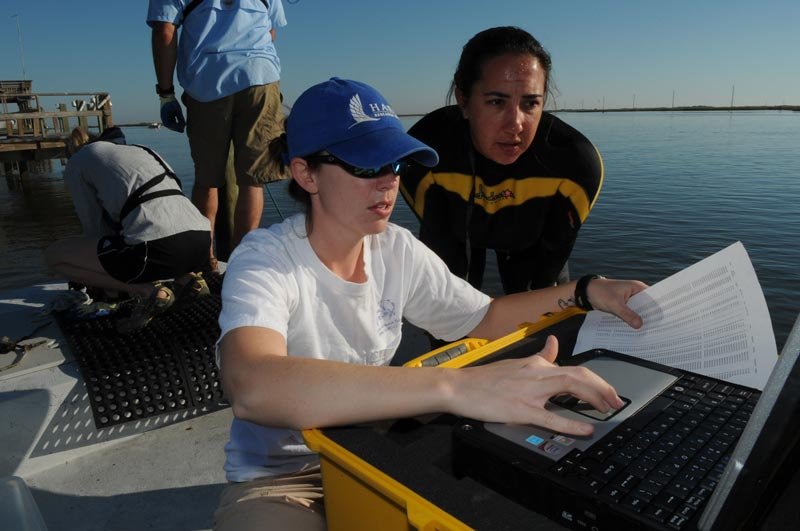Hydrologist
A hydrologist studies the movement, distribution, and quality of water.

Photo credit: Harte Research Institute for Gulf of Mexico StudiesPhoto credit: Harte Research Institute for Gulf of Mexico Studies
A hydrologist tests, measures and collects water data, such as river flow rate, tidal fluctuations, dissolved oxygen, sediment load, acidity, salinity, and groundwater levels. These data help the hydrologist, and all of us learn about the oceans, surface water on land, and groundwater in our aquifers. Hydrologists write reports and prepare water maps, tables and graphs of study results, and data analyses. These are published in documents or scientific journals and can be used to support water projects or investigations. Hydrologists have at least a bachelor’s degree; many have a master’s or doctorate degree.